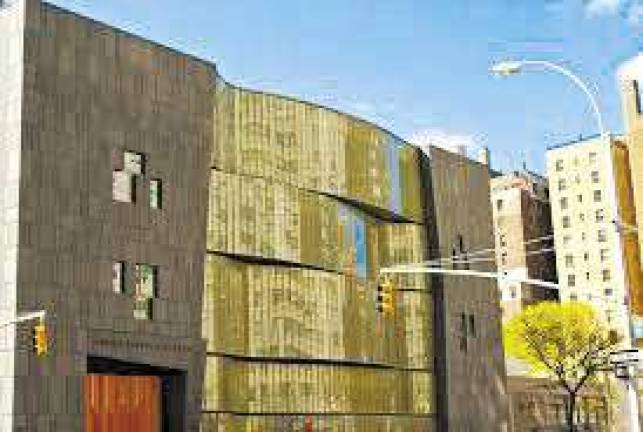Special Needs School to Open on Upper West Side

Manhattan Star Academy is currently taking applications and is looking to finish construction within the month
Manhattan Star Academy, a privately-funded, non-profit school, hopes to bring to the Upper West side and Manhattan something that many parents of special needs children feel is lacking in the city school system: a place for their child.
The Academy is part of the YAI network, a network of schools, training and health and human service agencies in New York and New Jersey that focuses on special needs children, teens and adults. Manhattan Star Academy is in its fledgling stages, with 10 children enrolled at the YAI Central Building in Chelsea. But by next year, the school for children ages 5-12 (the first school in the network above the preschool level), hopes to be open at their new Upper West side location, for 55 students eventually, right around the corner from Lincoln Center.
"We hear from so many families all the time that there is a shortage of kindergarten and elementary school programs that have the appropriate staffing and expertise for their child with special needs," said Stephen E. Freeman, CEO of YAI. "By focusing on each child's ability and learning style, Manhattan Star Academy is uniquely qualified to fill this void."
Right now, the spaces for offices and classrooms, on the third floor of the Lincoln Square Synagogue at Amsterdam and 68th Street, are empty, but they will be filled with the latest technology and services: equipped with iPads for each child, several Wii systems, a sensory motor gym, as well as a team of therapists and speech language pathologists for the students, trained in the latest techniques.
So who will this school be serving? According to Rae Eidorfer, the director of Manhattan Star Academy, children with sensory motor deficits. In layman's terms, that could include children with autism as well as a host of developmental and learning disabilities. Eisdorfer said that they won't turn away any child with a disability, unless he or she is medically fragile. The school is also tuition-based, but parents can be reimbursed by the Department of Education for as much as 80-90 percent of the tuition.
"There aren't enough programs out there for children with disabilities. We're not a school just for children with autism or Down syndrome, we reach a much broader population," said Eisdorfer. Parents don't want to their children to be in a school where there's just autistic kids because who will you learn from?"
Each child is placed into a group of 6 to 8, and the school is not grade-based, but rather ability-based. So for instance, if a breakthrough is made with an autistic child, he or she could move up a few "grade" levels within months. Even with specialized classrooms and teaching methods, each of the Manhattan Star classrooms will follow the core curriculum, which can be tough when the children, many of whom have limited attention spans, have to rotate subjects every 20 minutes to a half hour, from literacy to science, or yoga and cooking class.
"We personalize every child with an individual educational plan," said Eisdorfer. "Every child comes to the school with a plan from the Department of Education. We work with the strengths that each child has. We use whatever techniques out there, and whatever works."
Everything has been carefully designed in the building, including the color and light scheme, which is intended to keep the children calm and focused.
But Manhattan Star Academy is hoping to teach children beyond the four walls of the classroom as well, with trips to Lincoln Center, the JCC and the YMCA, as well as taking advantage of the museums, Central Park and farmers markets in the area. "We hit the jackpot when we found this space," said Eisdorfer.
"We're hoping that we will be able to allow the children to achieve a certain level of independence because the real world is not a Special Ed world."